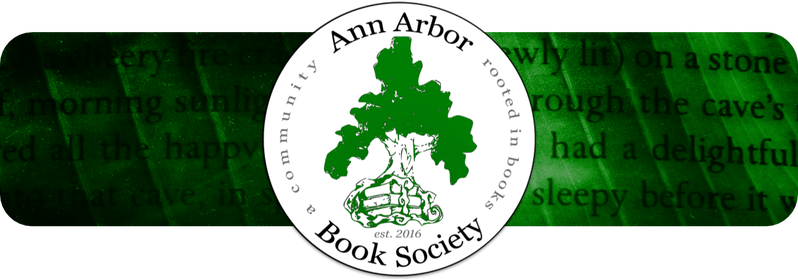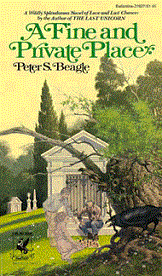Peter S. Beagle’s best-known work is The Last Unicorn. However, my favorite—one of my favorite books—will always be A Fine and Quiet Place. The title comes from an Andrew Marvel poem in which the speaker is trying to convince a woman to go to bed with him—saying you never know when you could die and, “the grave is a fine and quiet place/ but none, I think, do there embrace.” Perhaps the grave is not a place where you can embrace, but Beagle proves it is a place where you can learn love, and to embrace today.
The book takes place inside a Yorkchester Cemetery in New York. The book was published in 1960 but has a timeless quality. In the cemetery lives Mr. Rebeck, who has been living there for nineteen years. A talking raven of a grumpy and sarcastic attitude brings him his food and necessities such as books. Rebeck himself is a gentle man. He talks to the ghosts there. Once they get over the shock of being dead, they have most of the memory and all the personality of their living selves. However, over time they thin—their memories disappearing, their bodies disappearing, until they are no more than echoes. Rebeck has taken on the job of easing them through.
Into the story arrive the ghosts Michael Morgan, who remembers his wife as having killed him, and Laura Durand, who can’t remember if she stepped in front of the bus without seeing it, or on purpose. Both lived unhappy lives, but learn to live in death as their love story unfolds. Rebeck meets Mrs. Klapper, who comes to see her husband and for a while believes Rebeck is there on a similar mission. The four bond together to live in the face of death, even though even the living thought their lives over.
When I number the writers I have learned from, Beagle comes in at the top. He knows what needs to go into a story, and what can be left to the imagination. His quiet prose fools you into thinking you read a quirky book about ghosts and talking ravens, despite the fact it is often defined as “literature” because those who decide such things refuse to put such a class act book into speculative fiction—genre fiction. He is the kind of writer I admire the most, where symbols and themes don’t whack you upside the head, but rather in the wake and wonder of reading, you find yourself thinking about how it is never too late to live your life, until you shut the final page, you realize it is what Beagle has been telling you all along.
—Bets Davies writes speculative fiction, memoir, and poetry. She has out six speculative fiction novels and one chapbook, available in print or ebook at www.fusionfantasy.net. She funds her writing life by working at The Dawn Treader Bookshop, where too much of her paycheck goes right back into books.
Featured in April 2018 newsletter


